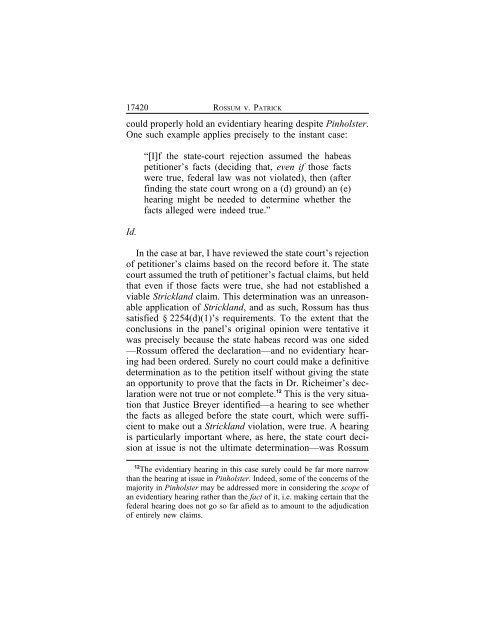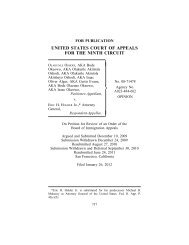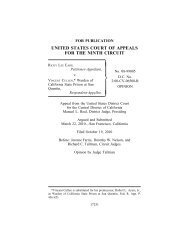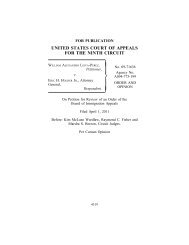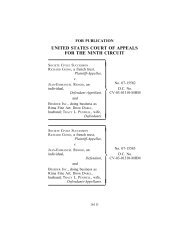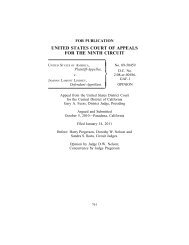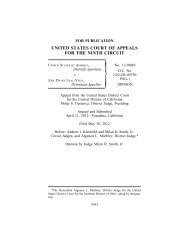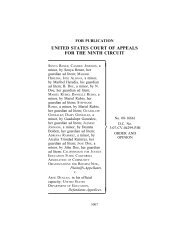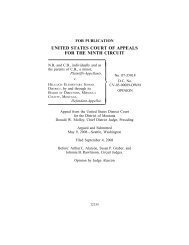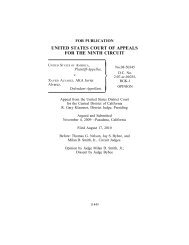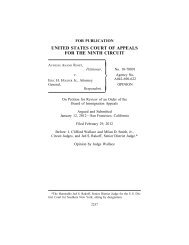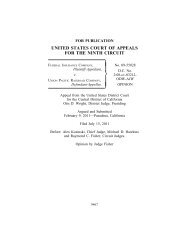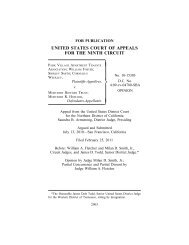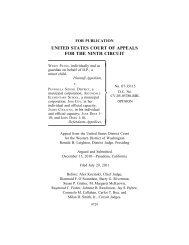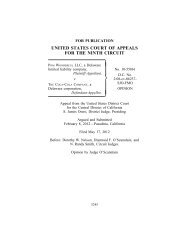kristin rossum v. deborah patrick - Ninth Circuit Court of Appeals
kristin rossum v. deborah patrick - Ninth Circuit Court of Appeals
kristin rossum v. deborah patrick - Ninth Circuit Court of Appeals
You also want an ePaper? Increase the reach of your titles
YUMPU automatically turns print PDFs into web optimized ePapers that Google loves.
17420 ROSSUM v. PATRICK<br />
could properly hold an evidentiary hearing despite Pinholster.<br />
One such example applies precisely to the instant case:<br />
Id.<br />
“[I]f the state-court rejection assumed the habeas<br />
petitioner’s facts (deciding that, even if those facts<br />
were true, federal law was not violated), then (after<br />
finding the state court wrong on a (d) ground) an (e)<br />
hearing might be needed to determine whether the<br />
facts alleged were indeed true.”<br />
In the case at bar, I have reviewed the state court’s rejection<br />
<strong>of</strong> petitioner’s claims based on the record before it. The state<br />
court assumed the truth <strong>of</strong> petitioner’s factual claims, but held<br />
that even if those facts were true, she had not established a<br />
viable Strickland claim. This determination was an unreasonable<br />
application <strong>of</strong> Strickland, and as such, Rossum has thus<br />
satisfied § 2254(d)(1)’s requirements. To the extent that the<br />
conclusions in the panel’s original opinion were tentative it<br />
was precisely because the state habeas record was one sided<br />
—Rossum <strong>of</strong>fered the declaration—and no evidentiary hearing<br />
had been ordered. Surely no court could make a definitive<br />
determination as to the petition itself without giving the state<br />
an opportunity to prove that the facts in Dr. Richeimer’s declaration<br />
were not true or not complete. 12 This is the very situation<br />
that Justice Breyer identified—a hearing to see whether<br />
the facts as alleged before the state court, which were sufficient<br />
to make out a Strickland violation, were true. A hearing<br />
is particularly important where, as here, the state court decision<br />
at issue is not the ultimate determination—was Rossum<br />
12 The evidentiary hearing in this case surely could be far more narrow<br />
than the hearing at issue in Pinholster. Indeed, some <strong>of</strong> the concerns <strong>of</strong> the<br />
majority in Pinholster may be addressed more in considering the scope <strong>of</strong><br />
an evidentiary hearing rather than the fact <strong>of</strong> it, i.e. making certain that the<br />
federal hearing does not go so far afield as to amount to the adjudication<br />
<strong>of</strong> entirely new claims.


